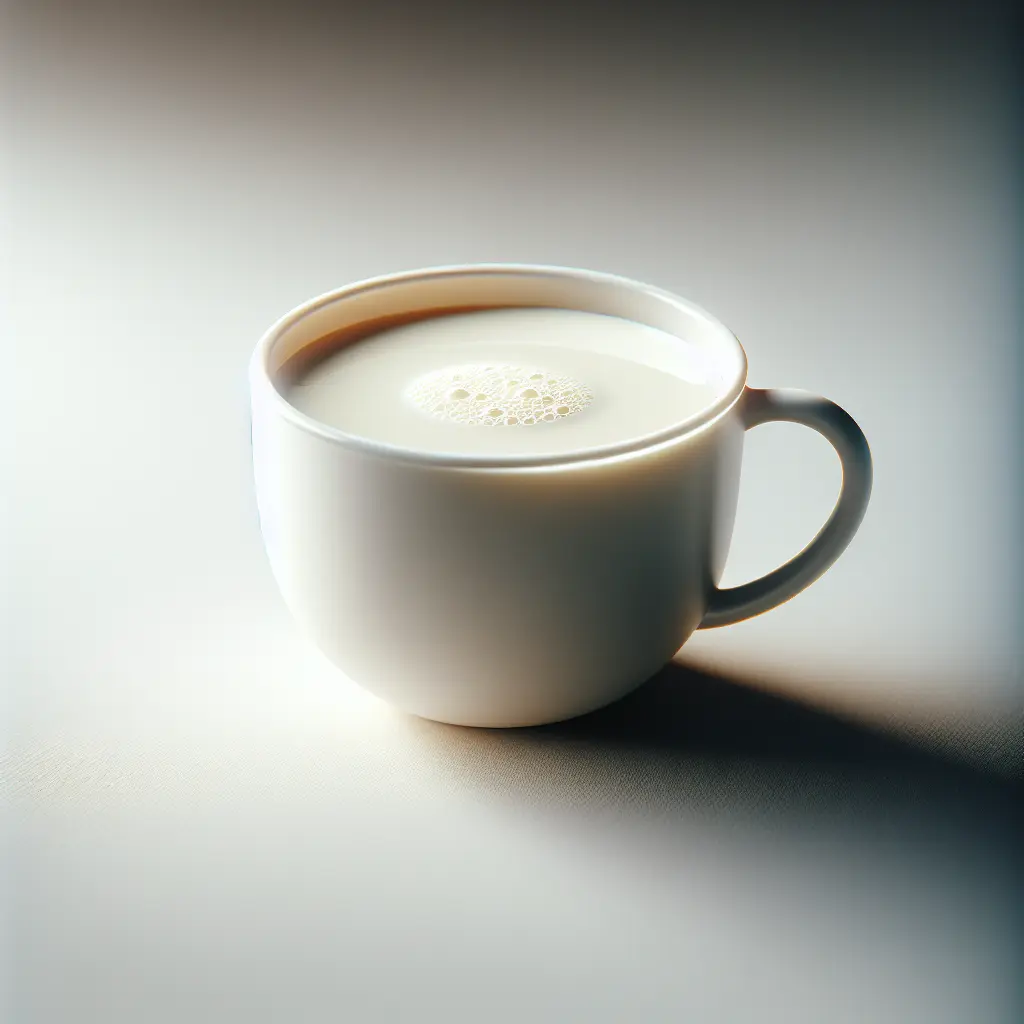Buttermilk: A Nutritional Superstar
Buttermilk is a fermented dairy product made by adding lactic acid bacteria to cow's milk. This process gives buttermilk its characteristic tangy flavor and slightly thick consistency. Buttermilk is not only a delicious beverage but also a nutritional powerhouse, packed with essential nutrients:
- Protein: Buttermilk is a good source of high-quality protein, providing 8.1 grams per cup. This macronutrient is vital for building and repairing tissues, as well as maintaining muscle mass.
- Calcium: Buttermilk is rich in calcium, a mineral that is essential for strong bones and teeth. A single cup contains approximately 30% of the Daily Value (DV) for calcium.
- Vitamins: Buttermilk is a good source of several vitamins, including vitamin D, which is necessary for calcium absorption, and vitamin B12, which is important for the nervous system and blood cell formation.
Culinary Delights with Buttermilk
Beyond its nutritional value, buttermilk is also a versatile ingredient in the kitchen. Its unique flavor and texture make it an excellent addition to various dishes:
- Baking: Buttermilk is commonly used in baking, where it acts as a leavening agent and tenderizer. It adds a subtle tang and lightness to cakes, biscuits, and pancakes.
- Marinades: Buttermilk is an excellent base for marinades due to its tenderizing properties. It helps break down the proteins in meat, making it more flavorful and succulent.
- Dressings: Buttermilk can be used to create creamy and tangy salad dressings. It adds a unique flavor to vinaigrettes and ranch dressings.
- Smoothies: Buttermilk can be incorporated into smoothies for a boost of protein and calcium. It adds a creamy texture and a subtle tang that complements other ingredients.
Health Benefits of Buttermilk
In addition to its nutritional and culinary value, buttermilk has several potential health benefits:
- Improved Digestion: The lactic acid bacteria present in buttermilk can support digestive health by promoting the growth of beneficial bacteria in the gut.
- Reduced Cholesterol: Buttermilk contains conjugated linoleic acid (CLA), a fatty acid that has been linked to reduced cholesterol levels.
- Boosted Immune System: Buttermilk's probiotic content and vitamin D contribute to a stronger immune system, helping to ward off infections.
Conclusion
Buttermilk is a nutritious and versatile food that offers a wide range of benefits. Its richness in protein, calcium, and vitamins, along with its culinary versatility, makes it a valuable addition to a healthy lifestyle. Whether enjoyed as a beverage, incorporated into recipes, or used for its health-promoting properties, buttermilk is a true culinary and nutritional gem.
How many calories are in Buttermilk?
Each 1 cup of Buttermilk contains 98 calories.
Buttermilk Nutritional Information
| Nutrient | Amount per 1 cup (245g) |
|---|---|
| Calories | 98 Calories |
| Protein | 8.1g |
| Fat | 2.2g |
| Saturated Fat | 1.3g |
| Cholesterol | 0.0098mg |
| Carbohydrates | 12g |
| Dietary Fiber | 0g |
| Sugar | 12g |
| Sodium | 0.466mg |
| Potassium | 0.37mg |
| Calcium | 0.284mg |
| Iron | 0.0001mg |
